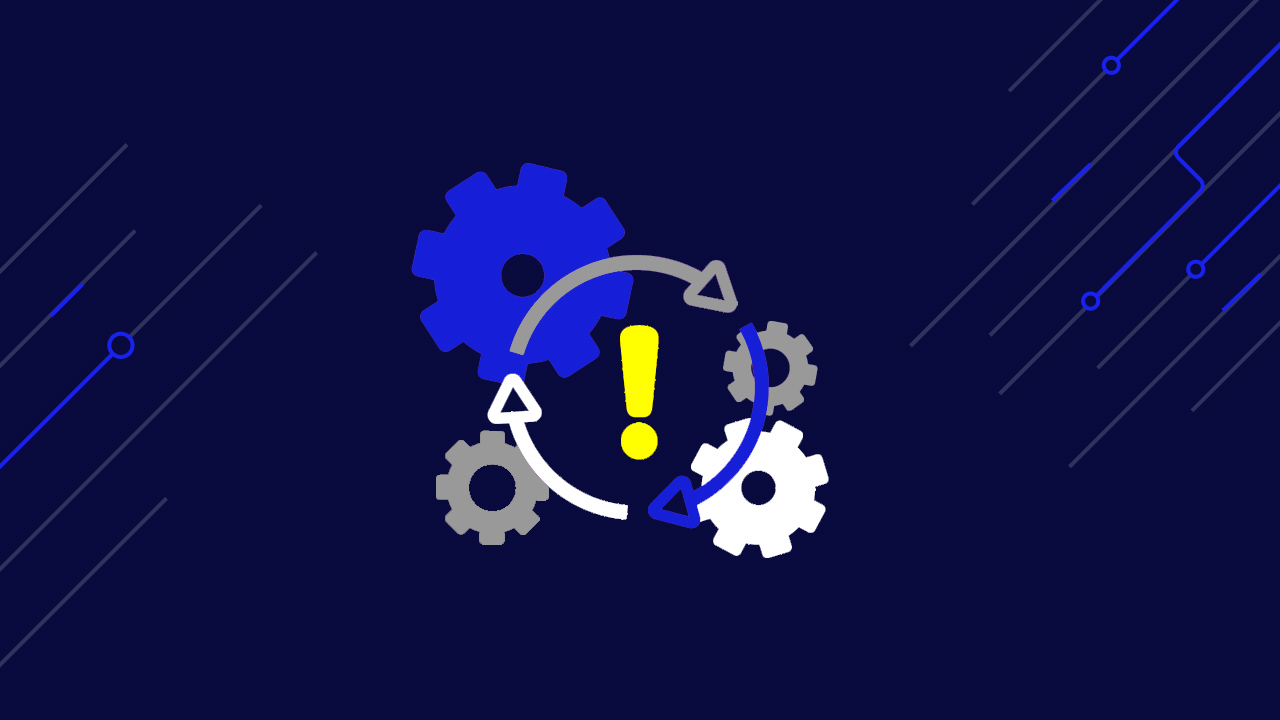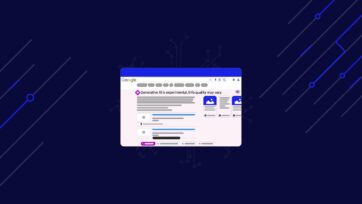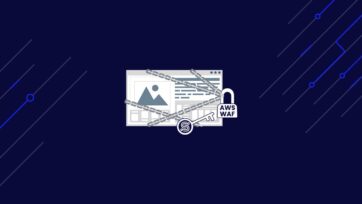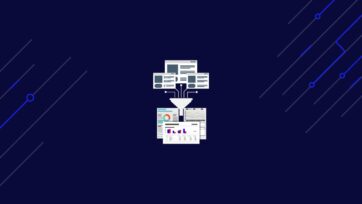Web scraping can be a complex task, especially when trying to evade bot detection by website anti-scraping measures. A reliable proxy server is crucial for masking your IP address and maintaining anonymity. Understanding the different types of proxies and their optimal use cases is fundamental to successful web data extraction.
In this web scraping guide, we’ll explore eight common types of proxies, exploring their advantages, disadvantages, and best-suited applications for various web scraping projects. You’ll also learn some key factors to keep in mind when selecting the ideal proxy types for your web data scraping needs.
TL;DR of Different Types of Proxies and Their Best Web Scraping Use Cases
Below are the eight common proxy types used for data extraction, analyzed based on their best web scraping scenarios and drawbacks.
Best Web Scraping Use Cases | Drawbacks | |
Free proxies | Testing web scraping codes and functionality | Slow, unreliable, and often get blocked |
Shared proxies | Small-scale web scraping projects | Shared IP addresses can lead to limitations and potential blocks |
Dedicated proxies | Medium-scale web scraping projects | More expensive than shared proxies, require more technical knowledge |
Datacenter proxies | Large-scale data scraping of non-sensitive data | Can be easily detected and blocked by anti-bot measures |
Residential proxies | Large-scale, intensive data scraping | More expensive and requires careful management to avoid IP bans |
Rotating proxies | Bypassing tough anti-scraping measures | Can be complex to set up and manage |
Static proxies | Simple data extraction tasks that don’t require frequent IP changes | Susceptible to getting blocks |
Mobile proxies | Collecting mobile-only content at scale | Can be more expensive and complex to set up than other proxy types |
8 Types of Proxies and When You Need Them
1. Free Proxies
Free proxies, also known as public proxies, are readily accessible servers that anyone can use without cost. While they may seem appealing for anonymous browsing, they often have significant drawbacks for web data extraction activities.
Free proxies rarely offer reliable performance, frequently suffering from slow speeds, frequent outages, and limited bandwidth. Their public nature makes them easily detectable by websites, leading to frequent IP blacklisting. Moreover, free proxies often lack strong security measures, leaving user data vulnerable to potential breaches.
Pros of Free Proxies
- Financial savings since it is a free proxy service.
Cons of Free Proxies
- Poor proxy speed and low bandwidth.
- Poor security, often resulting in IP blacklisting and unsuccessful scraping activities.
When to Use Free Proxies
Free proxies are best suited for small-scale, low-intensity web scraping projects. For instance, if you’ve built a Python LinkedIn web scraper or Python Reddit web scraping tool and want to test its functionality.
Top tip: Check out these 15 best free proxies for web scraping to gain insights into the free proxy market providers available in the market.
2. Shared Proxies
Shared proxies offer a more secure alternative to free, public proxies. They often provide a basic level of anonymity for individual users. However, they are primarily designed for personal use and may not be ideal for large-scale or high-intensity web scraping.
In a shared proxy setup, multiple users share a pool of private proxies. While this ensures a level of anonymity, it also introduces the risk of restrictions or IP blacklisting due to the actions of other users.
Pros of Shared Proxies
- Offers a better security option than free proxies.
Cons of Shared Proxies
- Other proxy users can influence the performance of the shared proxies.
- The proxy speed is rather slow, and the connection is unreliable.
When to Use Shared Proxies
Shared proxies are best suited for small-scale, occasional web scraping operations, not intensive ones.
3. Dedicated Proxies
The next on our proxy type list is dedicated proxies, also known as private proxies. A dedicated proxy is a proxy server exclusively assigned to a single user. This ensures optimal performance and reliability, as you won’t have to share the IP address with other users. By using a dedicated proxy, you can avoid the risk of IP blacklisting or restrictions that may occur with shared proxies.
However, while dedicated proxies offer increased stability, they are still susceptible to detection, especially when performing intensive scraping activities or making numerous API requests. Websites can employ advanced techniques to identify and block even dedicated proxies, particularly if they exhibit atypical behavior.
Pros of Dedicated Proxies
- Offers a better overall security and speed performance than shared proxies.
Cons of Dedicated Proxies
- If you have a large pool of dedicated proxies, managing them can be challenging and requires technical expertise to properly configure them.
When to Use Dedicated Proxies
Dedicated proxies are best suited for small- to mid-scale web scraping projects.
4. Datacenter Proxies
Datacenter proxies are a popular choice for web scraping due to their high speed and large pool of IP addresses. These proxies are generated from data centers, providing quick access to a vast number of IPs. However, a significant drawback of datacenter proxies is their shared subnetwork, which makes them easily identifiable by websites.
While the sheer volume of IP addresses can be beneficial for certain use cases, the risk of mass blacklisting is a major concern. For more sophisticated web scraping operations, it’s often advisable to explore alternative proxy types that offer greater anonymity and resilience, such as residential or rotating proxies.
Pros of Datacenter Proxies
- Offers relatively high speed and vast IP addresses.
Cons of Datacenter Proxies
- Has a shared subnetwork that makes it susceptible to website anti-bot scraping systems.
When to Use Datacenter Proxies
Datacenter proxies are excellent for large-scale web scraping projects involving non-sensitive data. Their high speed and scalability enable efficient handling of high-volume requests. Additionally, they are effective in bypassing geo-restrictions and accessing region-specific content.
5. Residential Proxies
Residential proxies are arguably the most secure and reliable proxy type for web scraping. These proxies utilize real IP addresses assigned to physical devices by Internet Service Providers (ISPs). By mimicking real user behavior, they effectively bypass website detection mechanisms and reduce the risk of IP bans.
However, it’s important to note that excessive or erratic activity (such as rapid-fire requests, identical user-agent strings, and inconsistent request intervals) from a residential IP can trigger suspicion, leading to IP bans or CAPTCHA challenges. To mitigate this risk, it’s crucial to use residential proxies responsibly and simulate human-like behavior, such as varying request intervals and user-agent headers. Additionally, the performance of residential proxies can vary depending on the geographic location of the IP address.
Related: Looking for a great shared proxy provider? This dedicated, virgin, and shared proxy listing can help.
Pros of Residential Proxies
- Highly reliable and secure proxy for web scraping.
Cons of Residential Proxies
- Unusual web request patterns can trigger anti-bot measures to take immediate action.
- The speed and reliability of residential proxies can differ based on the geographic location of the IP address.
When to Use Residential Proxies
Due to their high anonymity, reliability, and ability to mimic real user behavior, residential proxies are ideal for advanced web scraping tasks. For example, they are perfect for scraping sensitive data like stock market information and extracting large volumes of YouTube videos. Additionally, residential proxies are excellent for accessing geo-restricted content, making them invaluable for gathering location-specific information.
6. Rotating Proxies
Just like the name suggests, rotating proxies automate the process of switching IP addresses, selecting a new one for each request. This technique helps to mask your web scraping activity, maintain anonymity, and ensure consistent access to websites. By constantly changing IP addresses, rotating proxies reduce the risk of detection and IP blacklisting while increasing your web scraping success.
That said, frequently switching the IPs can slow down the connection speed. Additionally, using rotating proxies can be more complex than using static proxies and often comes with a higher cost.
Pros of Rotating Proxies
- Advanced anonymity makes it easy to track your web scraper bot.
Cons of Rotating Proxies
- Potential for slower speeds.
- Typically, it is more expensive than other proxy types.
When to Use Rotating Proxies
Rotating proxies are best suited for complex web scraping needs, especially those that require bypassing tough anti-scraping systems. They can scrape web data from Cloudflare-protected sites or extract Twitter data.
7. Static Proxies
Static proxies, sometimes also called sticky proxies, are the opposite of rotating proxies. Instead of switching the IP addresses per request, static proxies use the same IP as long as you want. They are usually sold or leased by data centers or ISPs.
Since you only use one IP address, static proxies generally deliver high speed and reliable performance. However, requesting several requests with static proxies can signal red flags to websites, increasing your web scraping chances of getting blocked.
Pros of Static Proxies
- High-speed and stable connection.
Cons of Static Proxies
- If not planned wisely, using static proxies can easily trigger CAPTCHA blockers.
- Since you only have one IP address, static proxies limit you from scraping location-specific data.
When to Use Static Proxies
Static proxies are best suited for web scraping projects that don’t require long sticky sessions.
8. Mobile Proxies
Mobile proxies provide IP addresses associated with mobile devices rather than residential or data center IPs. This allows you to simulate mobile device traffic, making it more difficult for websites to detect and block your scraping activities. Some mobile proxy providers offer different proxy classes, including 3G, 4G, and 5G mobile proxies.
Pros of Mobile Proxies
- Offer a higher level of anonymity by masking your IP address with a dynamic IP associated with a mobile device.
Cons of Mobile Proxies
- Often shared among multiple users, which can impact performance and increase the risk of IP bans.
- Not all proxy providers offer mobile proxies, and those that do may have limited availability or higher costs.
- Mobile network speeds can be less consistent than fixed-line connections.
When to Use Mobile Proxies
Mobile proxies are best suited to bypass advanced anti-bot measures and access mobile-only content.
What Factors to Consider When Choosing a Proxy for Web Scraping
Different types of proxy servers offer different attributes that can improve your web scraping activities—or jeopardize them. Here are a few factors that you should consider when picking the best proxy options for web data extraction:
- IP Locations and Geotargeting
If your web scraping project requires data specific to certain geographic locations, using local IP addresses is essential. This ensures that you can access content that’s restricted to specific regions or countries.When selecting a proxy provider, it’s crucial to verify if they offer proxies from the desired locations. Some proxy services even offer a more granular level of targeting, allowing you to specify ZIP codes or other precise geographic areas.
- Anonymity
Anonymity is key in web scraping to evade detection by website anti-bot measures. For example, you may want to mask your IP address with real residential IP addresses, making it challenging to trace the source of your scraping requests. - Data security
To safeguard your scraped data, select a proxy provider that employs robust encryption protocols. This ensures the secure transmission of your data and prevents unauthorized access. - Proxy Speed
Slow networks can slow down or even shut down your web scraping activities. Check out the proxy bandwidth, latency, and connection stability.Bandwidth impacts data transfer rates, with higher bandwidth enabling faster downloads and uploads, especially for large-scale scraping projects. Latency influences response times, with lower latency resulting in quicker request processing. Connection stability is essential for uninterrupted scraping, minimizing downtime, and maximizing productivity.
- Proxy Price
Select a proxy pricing model that aligns with your specific web scraping needs. Fixed plans are suitable for regular, consistent scraping, offering predictable monthly or annual fees. These plans often include a specific data allowance, such as 5 GB or 300 GB. For occasional or small-scale scraping, pay-as-you-go plans provide flexibility, allowing you to pay only for the resources consumed.
ScraperAPI: The Best Proxy and Web Scraping Tool Provider
ScraperAPI offers a robust platform that combines reliable proxies with advanced web scraping features. With a vast network of over 40 million rotating residential, mobile, and datacenter proxies spread across 50+ countries, ScraperAPI ensures you can almost any data from anywhere in the world.
Here are some other benefits of using ScraperAPI’s proxy and web scraping tool:
- Reliable proxies: ScraperAPI provides a diverse range of proxies to suit various scraping needs, from simple to complex.
- High uptime and unlimited bandwidth: ScraperAPI offers a 99.9% uptime guarantee and unlimited bandwidth, so you can rely on It for continuous, uninterrupted data extraction.
- Advanced data extraction features: ScraperAPI provides features like CAPTCHA handling, scheduled scraping (DataPipeline), and asynchronous scraping to streamline the process.
Interested in trying ScraperAPI? Sign up now for a 7-day trial!
Until then, happy scraping!






